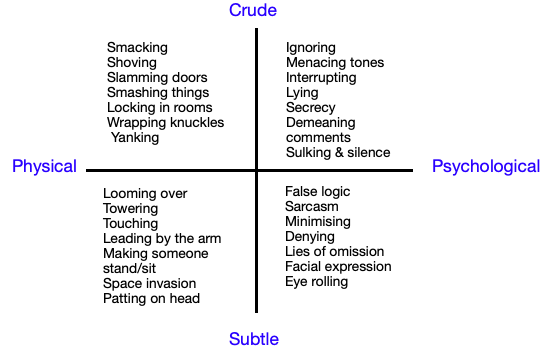Power & Its Misuse
Power is all around us – we experience its use and abuse every day from the earliest days of our lives. How aware are you of your use of power?
Author
Philippa Richardson
Pip is Founder of The Circle Line, a Transactional Analysis psychotherapist, a former City litigator and a Head of Marketing in the property industry. She works with individuals, leaders and groups to help them function well in life and work, believing that we can all write our own life story.

Power is all around us – we experience its use and abuse every day from the earliest days of our lives. After spending our youngest years subject to the daily impact of other people’s power, we quite naturally adopt oppressive or submissive roles as adults. The acceptance of power imbalances and abuses is drilled into us through our life-long immersion in hierarchy and competition – both inside our families and in the wider world.
Types of Power
Personal power is a potent thing. It can be incredibly impactful when well applied, and incredibly diminishing or destructive. Abuse can be expressed in both subtle and obvious ways.
An abuse of power takes three main forms:
Psychological power misuse: A climate of words, tone and behaviours that undermine, damage or demean. Can be emotional, verbal, or financial.
Physical: Any form of physical contact that is unwanted, rejected or forced.
Sexual: Any form of sexual activity or intimidation that is unwanted, rejected or forced.
Most of the oppression that people experience is psychological.
Psychological power plays
Imagine that you are sitting on a park bench in a sunny spot that I want to occupy. If I can take the place away from you, I will have manifested my power.
If I am sufficiently strong, I can push you or lift you out of your spot. This is an example of crude physical power.
If I can get you out of your seat without using physical force I am using my psychological power. This depends on my capacity to ignite your energy to cause you to do what you don’t want to do.
All psychological power plays depend on obedience. I can intimidate or persuade you out of the seat. I can cause you to feel guilty and give up your seat to me. I can bully or threaten you, or use the sheer volume of my voice. I can trick you or lie to you. I can entice you with a smile, or with a promise, or I can convince you that giving up your seat to me is necessary for national security.
Whatever my method, if I overcome your resistance to giving up your seat without using physical force, I have used my psychological power, which relies on obedience on your part probably through the creation of fear.
Identifying Power Misuse
We can identify all abuses of power in four ways:
Physical or psychological; and
Subtle or obvious (crude).

Ordinarily, people, even in violent environments, do not experience direct physical or sexual power abuse. When they do, they usually know about it. It is never ok.
Most of the oppression or abuse that people experience is psychological. This can be emotional, verbal, or financial and it is repetitive.
But physical violence is all around and under the surface, backing up psychological abuse. This is especially true in the case of the abuse of women and children.
***
We must all be alive to how we use and experience the use of personal power.
There is always help available – both to resist and to recover from abuse by someone in your life. If you are impacted by this article speak with one of our therapists, or contact one of these resources today.
Written with thanks and acknowledgment to Claude Steiner: quoted from The Heart of the Matter, 2009